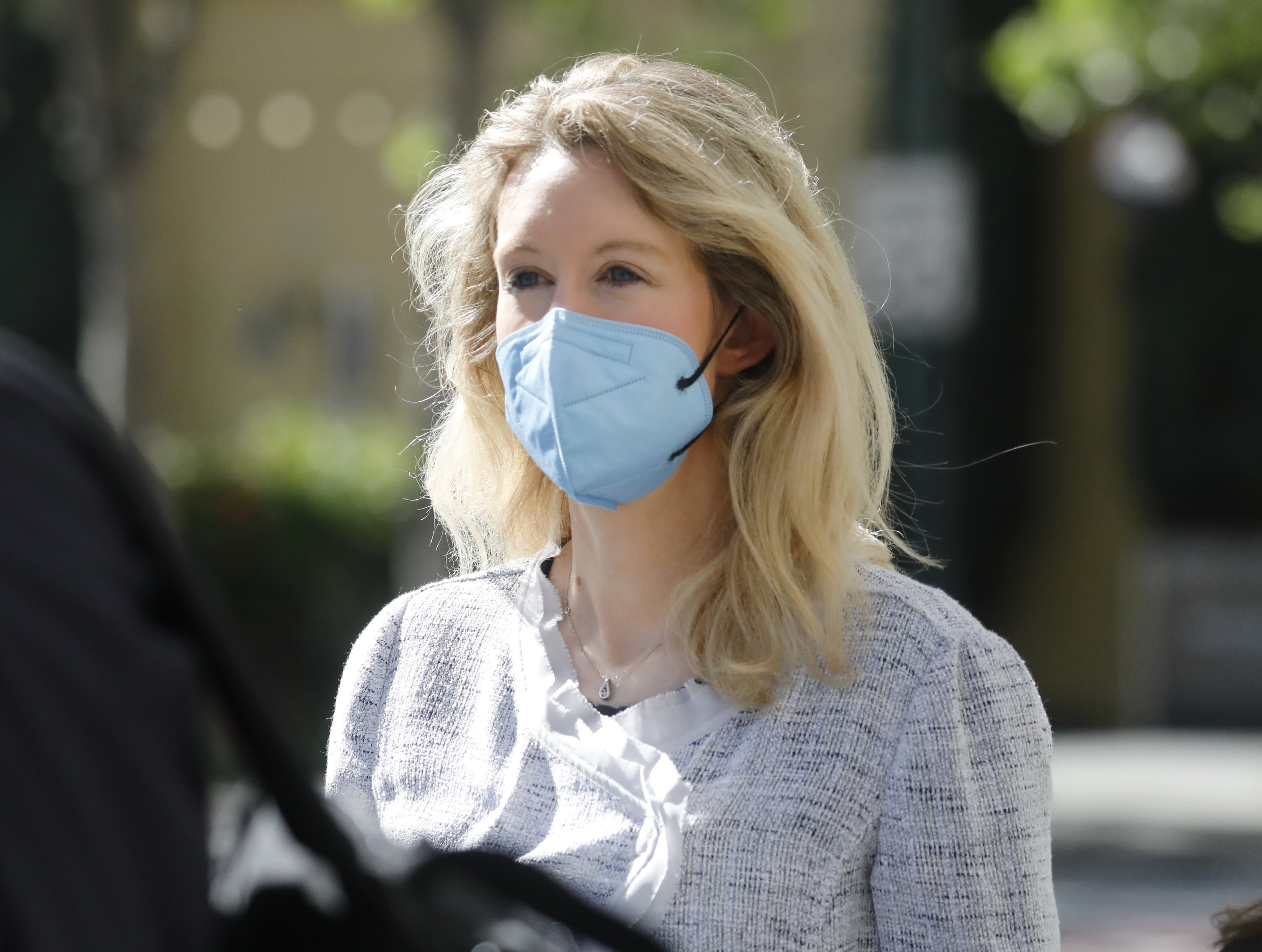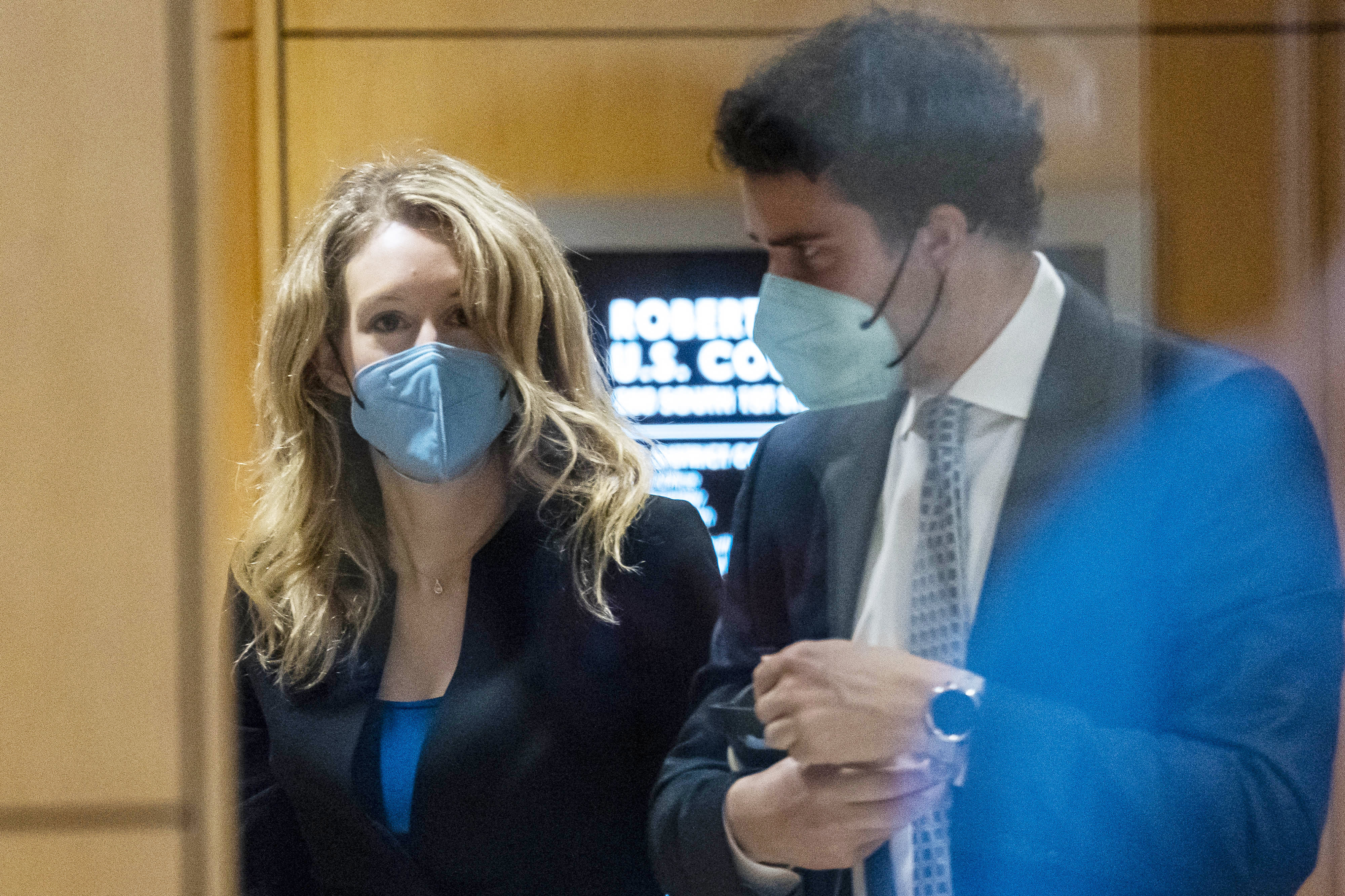The defense in the trial of Theranos founder and CEO Elizabeth Holmes spent nearly two days trying to counter the criminal fraud allegations against their client by showing the extent to which one investor did his homework, understood the risks, and put money in the company anyway.
Holmes is charged with 12 counts of defrauding investors of hundreds of millions of dollars, as well as doctors and patients, by making false and misleading statements about the now-defunct company's blood-testing technology.
Brian Grossman, a hedge fund manager at San Francisco-based PFM Health Sciences LP (PFM), testified that PFM was one of those investors in 2014, to the tune of $96 million.
Get a weekly recap of the latest San Francisco Bay Area housing news. Sign up for NBC Bay Area’s Housing Deconstructed newsletter.
Prosecutors on Tuesday spend 90 minutes asking Grossman, an experienced investor in the biotechnology sector, about PFM's investment decision.
In what is now a familiar story in the trial, Grossman said that Holmes and her business partner and alleged co-conspirator Sunny Balwani told him that Theranos tests and devices had been validated by big pharma companies, used on the battlefield, and developed to the point where Theranos could provide every type of blood test offered by more traditional labs using fingerstick technology and portable test analyzers.
Unlike other investors, Grossman himself went to a Walgreens to get a Theranos blood test, which turned out to be a venous draw from the arm rather than the fingerstick he expected.
Grossman said he asked Balwani why the test required more than a fingerstick and took longer than the four hours Theranos claimed to get results. Balwani, Grossman testified, told him that "one of the tests my physician had ordered was a highly unusual test," and that a laboratory problem with one test had held up the release of the rest of the results to his doctor.
Grossman said he was never told that Theranos in fact ran the tests on third-party devices rather than on its own machines.
Defense attorney Lance Wade then spent the rest of Tuesday and most of Wednesday cross-examining Grossman in sometimes excruciating detail on the specific steps he and PFM took before making the large financial commitment, as well as the many warning flags that still did not derail the process.
Grossman acknowledged that he put three of his firm's analysts on the deal and that the team spoke with industry, regulatory and medical experts before going forward.
Wade showed Grossman an email in which one of the analysts said he was "somewhat surprised that [Theranos] managed to do so much under the wraps, sounds sci-fi to me." The same analyst noted that the company's "projections are a bit aggressive ... but with excellent execution are doable."
Grossman said he agreed that "execution was a risk for sure."
Wade then showed Grossman a series of internal PFM emails sent just before the investment closed, showing that Grossman and others were told that their investment could crater.
An analyst reported that "many of the Theranos tests wouldn't qualify" for U.S. Food and Drug Administration approval; that the FDA might send a "cease and desist order" because the Theranos tests were not FDA-cleared; that Theranos did not have "adequate data for FDA approval for many of its tests today"; and that "we already know that" some tests can't be done accurately when "miniaturized."
One of the internal exchanges seemed to contradict Grossman's testimony that he understood that venous blood draws were used for only a tiny sliver of tests and that even these would be converted to fingerstick procedures within six months: "We also have to assume that there is a possibility that they will not be able to get certain tests approved by the FDA, and they will remain venous blood draw tests (which they mentioned).”
Part of PFM's $96 million investment forms the basis for the one of the wire fraud counts in the indictment.
In a brief examination at the end of day, Arizona resident Erin Tompkins testified that she went for a Theranos blood test at Walgreens in 2015 and that the results showed that her blood contained HIV antibodies. Tompkins said that she called Theranos asking to speak to a lab representative but never received a call back. Tompkins said that she has never been diagnosed or treated for HIV and that all tests she has taken since have not shown any HIV antibodies present.
The prosecution is down to its last few witnesses, saying last week that they would rest their case by Friday.
U.S. District Judge Edward Davila observed while the jury was on break that the lengthy cross-examination of Grossman could "play havoc" with the trial schedule.



